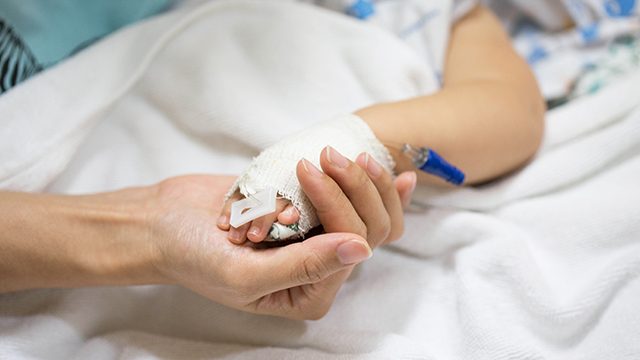SUMMARY
This is AI generated summarization, which may have errors. For context, always refer to the full article.

MANILA, Philippines – Only 5 nations from Eastern Europe and Central Asia have attained gender equality in education and health in this year’s Global Gender Gap report.
The findings of the World Economic Forum (WEF), released on Thursday, November 2, showed Czech Republic, Latvia, Lithuania, Slovak Republic, and Slovenia have fully closed the gender gap in terms of educational attainment as well as the health and survival.
The WEF ranked 144 countries’ gender equality scores based on educational attainment, health and survival, economic participation and opportunity, and political empowerment.
Under education, the report measured the gap between women’s and men’s current access to education through the ratio of women to men who have completed the primary, secondary, and tertiary levels. The ratio of female literacy rate to the male literacy rate was factored in as well.
For health and survival, the WEF studied the sex ratio at birth to capture the phenomenon of “missing women” in countries whose families prefer to have sons over daughters. The report also measured the gap between women’s and men’s healthy life expectancy.
Still, a total of 27 out of the 144 countries surveyed have fully closed the gender gap in education, 3 more than last year following the addition of Benin, Guinea, and Chad to the list:
- Finland
- Slovenia
- Ireland
- Philippines
- France
- Denmark
- Canada
- Latvia
- Barbados
- Cuba
- Bahamas
- Lithuania
- Belgium
- Netherlands
- Australia
- Estonia
- Israel
- Botswana
- Jamaica
- United States
- Luxembourg
- Lesotho
- Slovak Republic
- Czech Republic
- Brazil
- Malta
- Maldives
Under health and survival, however, only 34 countries have closed the gender gap, as compared to last year’s 38:
- Rwanda
- Nicaragua
- Slovenia
- Namibia
- South Africa
- Latvia
- Burundi
- Lithuania
- Moldova
- Argentina
- Colombia
- Poland
- Serbia
- Panama
- Mongolia
- Croatia
- Uruguay
- Romania
- Venezuela
- El Salvador
- Dominican Republic
- Russian Federation
- Slovak Republic
- Kenya
- Kyrgyz Republic
- Czech Republic
- Braizil
- Cambodia
- Swaziland
- Sri Lanka
- Guatemala
- Mauritius
- Japan
- Syria
One of the countries that lost its gender equality status for health this year is the Philippines, which reopened its gap for the first time since 2006.
The Global Gender Gap report said the Philippines also has a “worsening performance” on the wage equality for similar work category, dropping from 7th last year to 21st this year.
But the country’s educational attainment gender gap remains fully closed. (READ: Do Southeast Asia, PH have gender equality in education?)
Overall, the Philippines remains 10th most gender equal country in the world, despite slipping 3 spots from last year.
Countries located in Western Europe dominated the top 10. Iceland was still the top gender-equal country for this cycle after having held the spot in the last 9 years. Norway followed Ireland at second place while Finland came in 3rd.
Rwanda, Sweden, Nicaragua, Slovenia and Ireland completed ranks 4 to 8, respectively. – Rappler.com
Add a comment
How does this make you feel?
There are no comments yet. Add your comment to start the conversation.